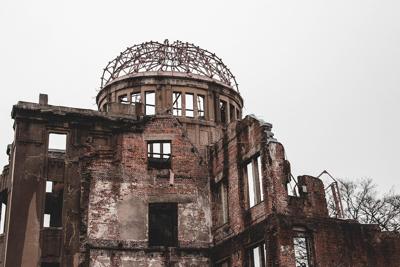On the 80th anniversary of the stifling detonations over Hiroshima and Nagasaki, societies worldwide reflect on those days in August 1945 when life turned monochrome under a sky of mushroom clouds. It's a historical moment engraved into global consciousness, reminding us of the perils of nuclear warfare. On August 6 and 9, the United States dropped atomic bombs on these Japanese cities, resulting in swift and extensive devastation. Roughly 140,000 people in Hiroshima and 70,000 in Nagasaki perished by year's end, reported the New York Times.
The attacks signified not only the close of World War II but also sparked an unprecedented nuclear arms race and established the concept of mutually assured destruction as a deterrent, according to Fox News. Rebecca Heinrichs, a nuclear expert, explained in the Fox report, "This is the first time that the United States is facing down two nuclear peer adversaries — Russia and China," signaling a dynamic geopolitical risk that wasn't present during the Cold War.
This week, pilots Adrian Eichhorn and Shinji Maeda embarked on a commemorative friendship flight, aiming to shine light on reconciliation. Their Beechcraft Bonanzas flew in tight formation over Wendover Field, a historic site from the Manhattan Project era, as reported by CNN. "It's important to renew interest in our collective history," said Eichhorn.
Read more on Chicago Star:
- Rivian supplier Adient accelerates into Illinois, adding to the state’s EV boom
- Chicago parks come alive as Midnight Circus blends spectacle with giving back
- From pixels to petunias: The viral Roblox game that’s beating the big guns
- Darvin’s ‘Dog Days of Summer Sale' is BACK!
According to Fox News, the Doomsday Clock, a symbolic representation of humanity's proximity to global catastrophe, has ticked closer to "midnight" this year, reflecting mounting nuclear tensions between major powers. As Heinrichs highlighted in the report, both Russia and China are ramping up nuclear capabilities, posing a unique challenge.
While August echoes reminders of 80 years past, the voices of the surviving hibakusha and contemporary peace efforts highlight the persistent global quest: avoiding the echoes of that terrible gray.








(0) comments
Welcome to the discussion.
Log In
Keep it Clean. Please avoid obscene, vulgar, lewd, racist or sexually-oriented language.
PLEASE TURN OFF YOUR CAPS LOCK.
Don't Threaten. Threats of harming another person will not be tolerated.
Be Truthful. Don't knowingly lie about anyone or anything.
Be Nice. No racism, sexism or any sort of -ism that is degrading to another person.
Be Proactive. Use the 'Report' link on each comment to let us know of abusive posts.
Share with Us. We'd love to hear eyewitness accounts, the history behind an article.